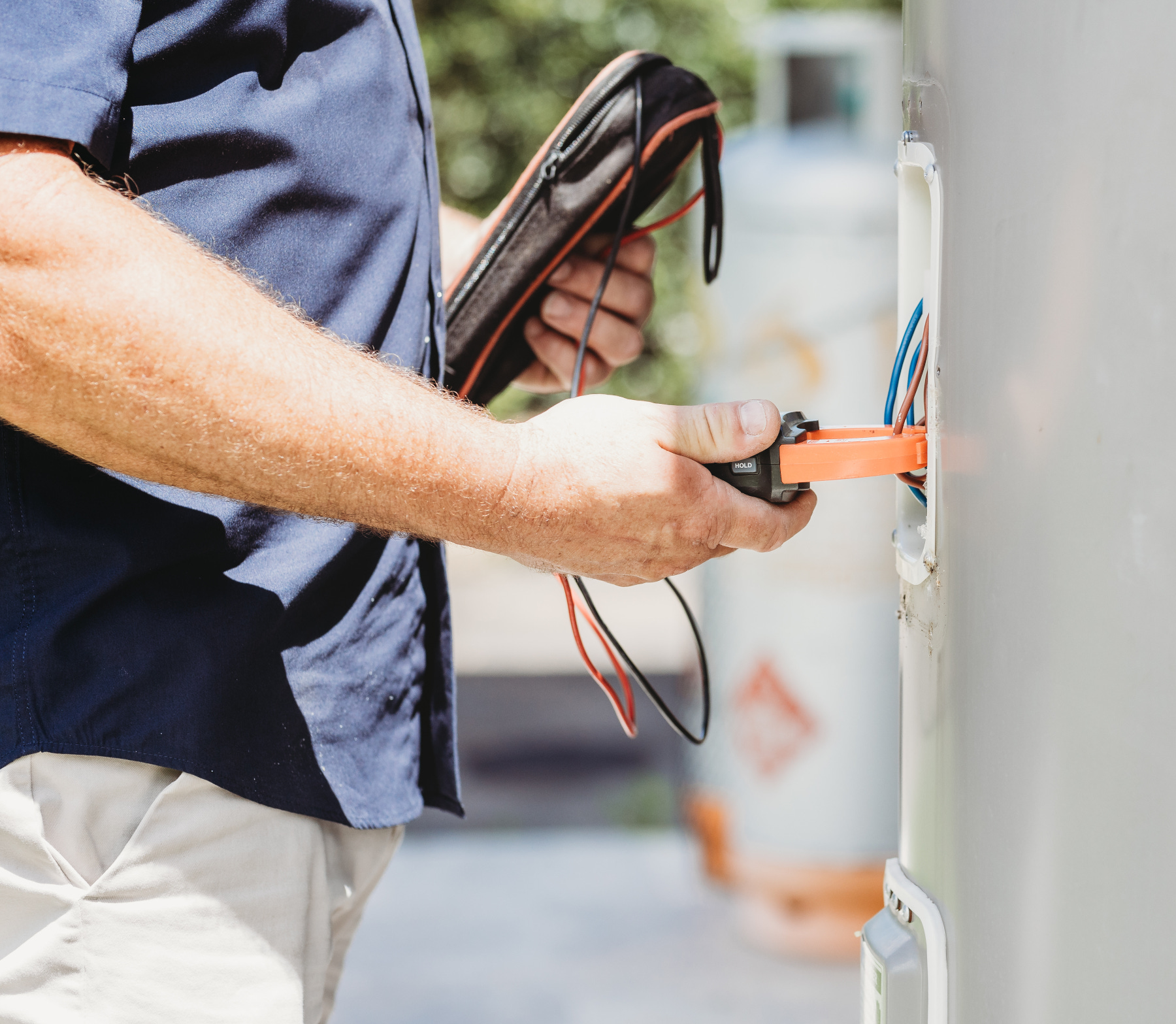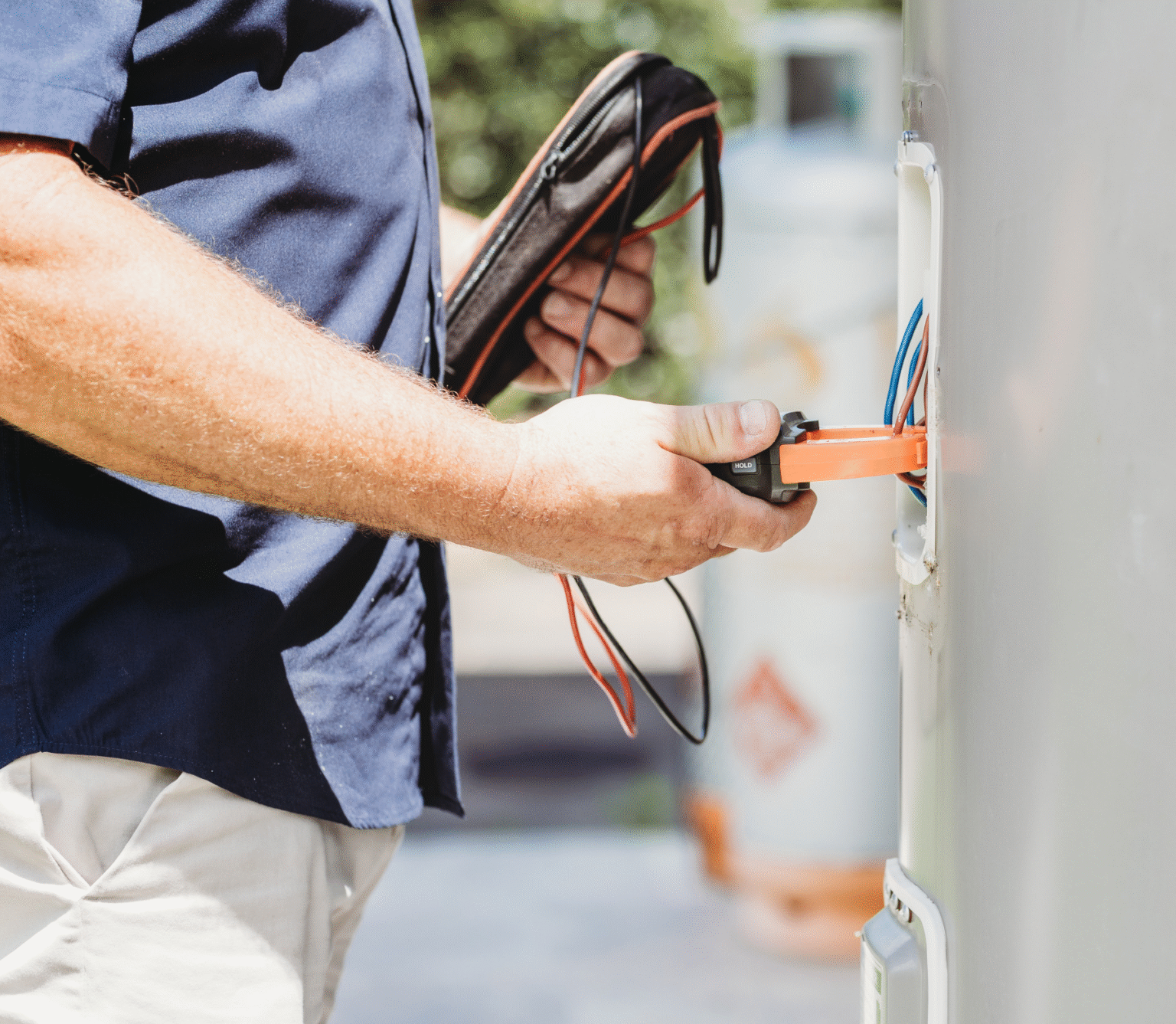
A heat pump hot water system usually costs between $2,500 and $5,000.
Last year in Australia, 70% more heat pump hot water systems were installed than the year before! This is because they’ve gotten better at working well and can now connect to solar power systems.
If you’re looking for a new way to heat water at home, or want to switch to something that saves more energy, a heat pump hot water system might be a good choice. But what is it, and how does it work?
We’ve put together all the key info, plus the pros and cons, to help you decide if a heat pump hot water system is right for you and your home.
What Is A Hot Water Heat Pump?
Air source heat pump hot water systems heat water by using warmth from the air around them. They have two main parts: a compressor and a water tank. The compressor has a fan that pulls in air, and a special fluid inside (called refrigerant) absorbs the heat from that air. Then, the refrigerant gets squeezed, which makes it even hotter. This heat is passed to the water in the tank, making it warm enough for showers, washing dishes, and more.
These systems are super energy efficient, they use 3 to 4 times less electricity than regular water heaters. They work in different climates, but they’re most efficient in mild weather. Overall, they help lower energy bills and are better for the environment because they use less power and create less pollution.
How Do Hot Water Heat Pumps Work?
Heat pump hot water systems work kind of like a fridge, but in reverse. Instead of making things cold, they take heat from the air and use it to warm up water. They don’t make heat from scratch, they just move it from the air into the water.
Here’s how it works, step by step:
- A fan pulls in warm air from outside.
- That air goes into a part called the evaporator, which has a special fluid (called refrigerant) inside it.
- The warm air makes the fluid turn into a gas.
- A compressor then squeezes that gas, which makes it even hotter.
- The heat from the gas is passed into the water tank, warming the water.
- After that, the gas cools down, turns back into a liquid, and starts the cycle again.
Most heat pumps take heat from the air (called air-source), but some can also get heat from the ground or water (called ground-source).
There are also two main types of air-source systems; Integrated systems, where the fan and water tank are all in one unit and split systems, where the fan and compressor are separate from the water tank, kind of like how a split air conditioner works (but more on that later).
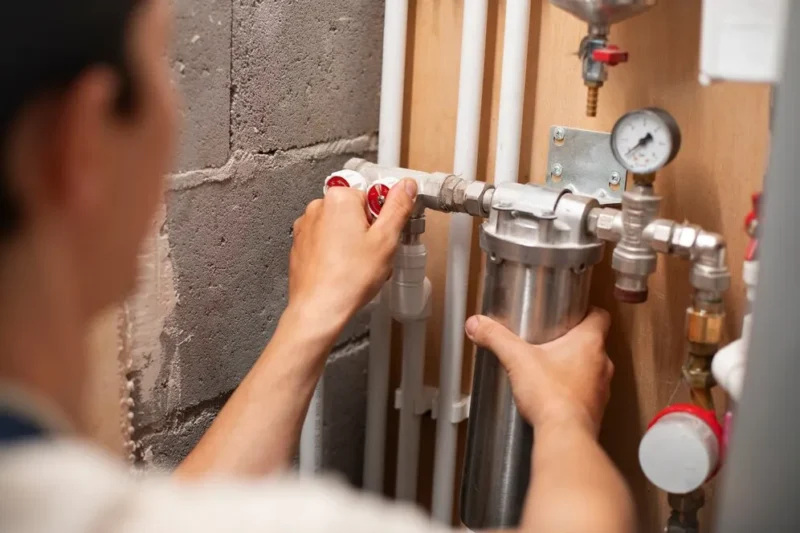
The Benefits Of Heat Pump Hot Water Systems
Heat pump hot water systems have a lot of great benefits, which is why many people choose them for their homes or businesses.
Here are some of the main reasons why:
- Saves Energy: Heat pumps use up to 70% less electricity than regular electric water heaters. That means they don’t use as much power, which helps save money.
- Good For The Environment: They get heat from the air around them, which is a natural and renewable energy source. This means they create less pollution and help protect the planet.
- Saves Money Over Time: Even though they might cost more to buy at first, you can save a lot on your energy bills later. They also don’t need much fixing or maintenance.
- Takes Up Less Space: Heat pump systems are often small and easy to fit in tight spots, which is great if you don’t have much room.
The Disadvantages Of Heat Pump Hot Water Systems
Heat pump hot water systems have a lot of good things about them, but there are also a few downsides.
Here are some things to think about:
- Can Be Noisy: Just like an air conditioner makes a soft humming sound when it’s on, heat pumps can make a bit of noise when they’re running.
- Needs Fresh Air: For the system to work well, it has to be in a place where air can move around easily. That’s because it needs to pull in warm air to heat the water.
- Costs More At First: Heat pump systems can be more expensive to buy and set up than regular hot water systems.
- Works Better In Warm Places: Heat pumps need a difference between the outdoor temperature and the water temperature to work properly. They usually work best in warmer areas and might not be as good in cold weather
Types of Hot Water Heat Pumps: Which One Is Best for You?
1. Air-Source Heat Pumps (Most Common & Cost-Effective)
- Uses warm air to heat water
- Works best in places with mild or warm weather
- Usually the cheapest type of heat pump
- Comes in well-known brands like Rheem, Stiebel Eltron, and Rinnai
Best for: People who want to save energy and money by switching from an electric or gas water heater.
If you’re changing from a gas system, it might cost more to install because you’ll need both a plumber and an electrician, and sometimes a new electrical circuit too.
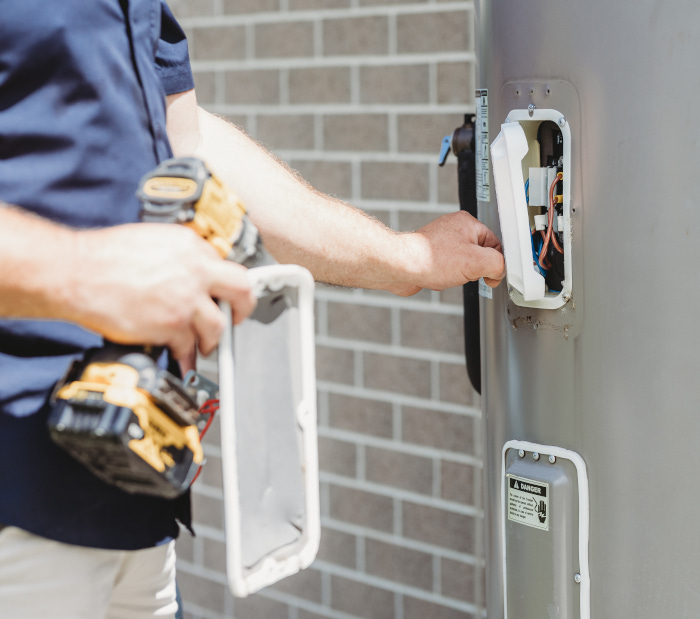
2. Ground-Source (Geothermal) Heat Pumps (Ultra-Efficient, Higher Cost)
- Uses the steady heat from underground to warm up water
- Saves more energy than systems that use air
- Costs more to set up at first, but saves the most money over time
- Needs pipes to be installed underground
Best for: Homes with big yards and families who want to save lots of energy and money in the long run.
3. Hybrid Heat Pumps (Smart Efficiency Boost)
- Uses both a heat pump and a gas or electric backup
- Can switch between them to save the most energy
- Works great in cold places where regular heat pumps don’t do as well
- Costs more, but gives the best control over energy use
Best for: Homes in colder areas that want to save energy with a heat pump but still have reliable hot water in winter.
Integrated VS Split Heat Pump Hot Water Systems
Integrated Heat Pump
An integrated heat pump hot water system has the compressor and water tank built into one single unit. Usually, the compressor sits above the water tank. One benefit of the integrated system is that it takes up less space on the ground than a split system. It also takes less time to install and is cheaper to set up.
Split Heat Pump Hot Water System
With a split heat pump hot water system, the compressor is a separate part that gets attached to a wall or placed on the ground next to the water tank. Since split systems don’t have to be small enough to sit on top of the tank, they can be bigger, which often makes them more powerful and able to heat water to higher temperatures.
They also let you put the compressor and tank in different spots, like the compressor outside and the tank inside. The tank doesn’t need as much space around it, either. Split systems usually cost a bit more to install because you have to set up and connect two separate parts. Sometimes, you also need to pour a concrete slab for the compressor to sit on.
Selecting The Right Heat Pump For Your Home
When you’re thinking about buying a heat pump hot water system, there are a few important things to think about:
- What’s your main reason for getting one?
Are you trying to:
- Save money on your energy bills?
- Get more hot water because you keep running out?
- Help the environment by using less energy?
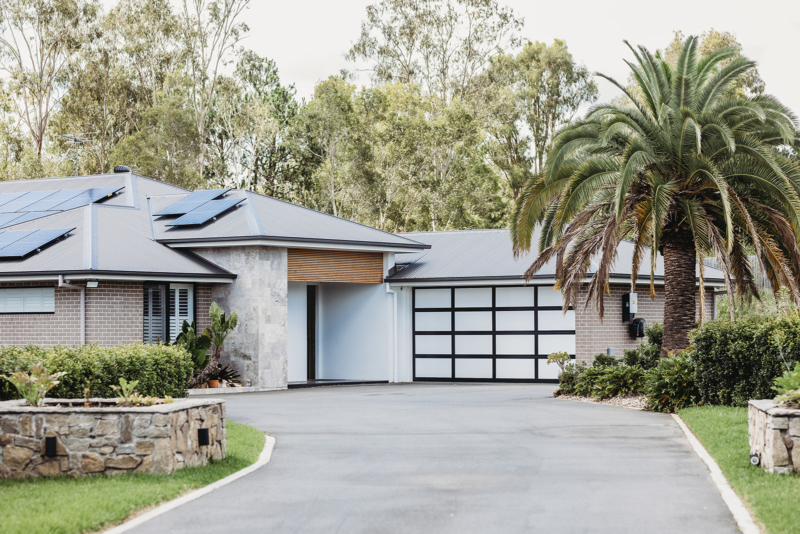
Factors That Determine Your Decision For Choosing A Suitable Product
How Many People In The House/How Much Hot Water Are You Going To Use?
We usually recommend getting a bigger water tank (250 liters or more) for your heat pump hot water system. This helps make sure your family has enough hot water. Also, since heat pumps heat water more slowly when the air is cold, having extra stored hot water helps prevent you from running out.
Is The Heat Pump Going To Be Running On An Off Peak Cycle/Continuous Cycle Or Day Time Timer Function?
A heat pump uses the air around it to heat water. That means it works better during the day when it’s warmer outside, compared to at night when it’s cooler. So, if you can set a timer, it’s a good idea to heat the water between 11:00 AM and 4:00 PM to make the most of the warm air.
The Location Of The Heat Pump/Tank
It’s important to think about where you put the hot water system in your home. The closer it is to your taps and showers, the better, that way, the hot water doesn’t have to travel as far through the pipes.
You should also think about which direction the heat pump faces. Facing it north is usually best for heating during the day, but facing it east or west might work better if you already have solar panels pointing that way. The more sunlight the heat pump gets, the better it will work to heat your water.
Do You Have Solar Panels Installed On Your Roof?
You can think of a heat pump like a battery, but instead of storing electricity, it stores heat. By using a timer, you can heat the water during the day and keep it warm, so it’s ready to use later when you need it.
Where You Live Geographically; Consider Weather And Ambient Air Temperatures
Location really matters. If you live in a cold place, a heat pump hot water system won’t work as well. But if you live somewhere warm, the heat pump will work better and be more efficient.
Product Selection For “Heat Exchange” Or “Tank Wrap”
Heat exchange systems use a small pump to move heat from the heat pump into the water tank. Tank wrap systems use a coil (like a metal tube) inside or around the tank to move the heat into the water. That means tank wrap systems have one less part than heat exchange systems.
Heat Pump COP And What This Means
COP, or Coefficient of Performance, shows how efficient a heat pump is. The higher the COP number, the less electricity it needs to heat water. Most heat pumps have a COP close to 1:4, which means they can make 4 units of heat using just 1 unit of electricity.
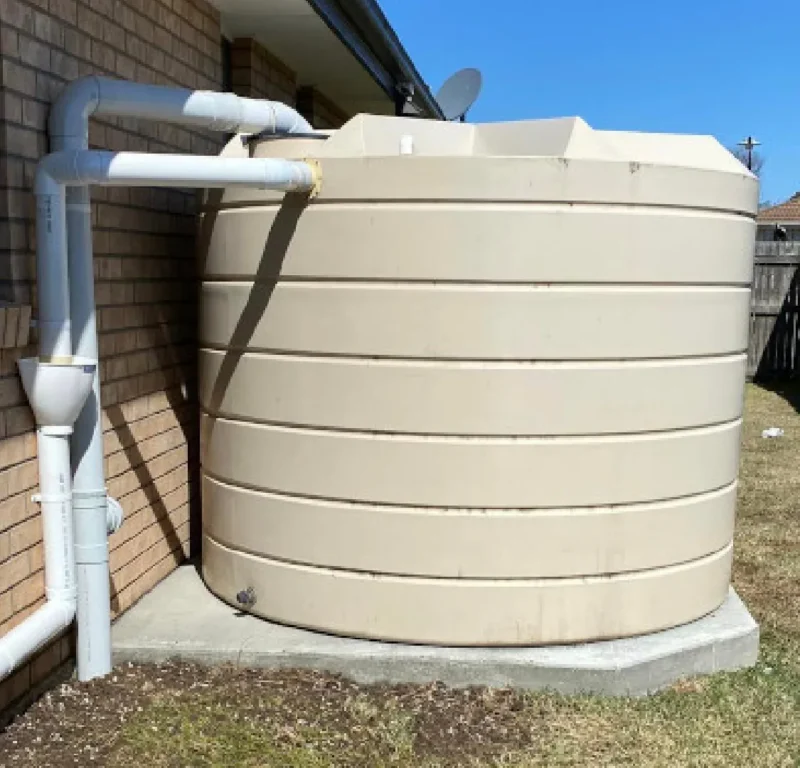
Sizing Your Heat Pump System
Picking the right size heat pump for your home is super important to make sure you always have enough hot water without wasting energy. Here’s how to do it:
- Figure Out How Much Hot Water You Need: Think about how many people live in your home, how many bathrooms you have, and what things use hot water (like a dishwasher or washing machine). A big family in a house will need more hot water than two people in a small apartment.
- Pick The Right Power Level: Based on how much hot water you need, you’ll want a heat pump that’s powerful enough (measured in kilowatts or kW) to keep up, especially during busy times like morning showers.
- Check the COP (Coefficient of Performance): This tells you how efficient the heat pump is. A higher COP means it gives you more hot water while using less electricity. Look for a heat pump with a high COP to save energy and money.
- Look At Extra Features: Some heat pumps come with cool features like temperature control, timers, and even remote controls. These can make your life easier and help the system run better.
If you follow these tips, you’ll get a heat pump that fits your home just right and gives you hot water when you need it.
Cost & Installation: How Much Does A Heat Pump Hot Water System Cost?
Putting in a heat pump hot water system usually needs two types of workers — an electrician and a plumber.
If you’re replacing an old electric hot water system and the wiring can still be used, some plumbers with special licenses might be able to do both the plumbing and electrical work. This is the cheapest option and can cost around $600 to $800.
But if you’re switching from a gas system, it’s more complicated. You’ll need a new electrical line from your switchboard, and both a licensed plumber and a licensed electrician. Some companies offer a set price for both jobs, but usually they hire someone else for the part they don’t do. In this case, the cost usually starts at $1,000 to $1,400.
The cost might go up if:
- The heat pump is going in a totally new spot and needs new water pipes
- The switchboard is far away (more than 10 meters) from where the system will be
- The spot is hard to reach and needs special equipment to lift the system
The installer is in charge of bringing the heat pump to the right place and taking away your old one, that’s included in the price.
To give you a final cost, the company will usually ask for pictures of your current water heater, the spot where it will go, and your switchboard.
Hardware Costs
A good quality heat pump with a smaller tank (under 200 liters) usually costs around $2,000. If you want a bigger tank (250 to 300 liters) from a popular brand, the price is more like $2,500 to $3,500. The really high-end systems, like Reclaim Energy or Sanden, can cost $5,000 to $6,000 or even more, and that’s just for the system itself, not including installation.
Comparison Of Different Types Hot Water System Installation Cost
The cost to install a hot water system in Australia can be very different depending on the type you choose. Here’s a rough idea of how much each kind might cost:
- Electric storage tank: $1,000 to $2,000
- Gas storage tank: $1,500 to $3,000
- Heat pump: $3,000 to $5,000
- Solar hot water system: $5,000 to $10,000
- Instant (tankless) gas system: $3,000 to $5,000
These are just estimates, the real price can change based on things like how big the system is, where it’s being installed, and which brand you pick. Some places in Australia also offer rebates for certain systems, which can help make it cheaper.
Beware Of Cheap Offers Or ‘Free Upgrades’
Because of rebates (money the government gives to help people buy heat pumps), some companies try to take advantage and offer really cheap deals, sometimes almost free. But you need to ask yourself: How long will this system last? and Will it end up costing me more later?
In some states, the rebates can be worth between $1,000 and $2,500, depending on your situation. Most of the time, you can only get the rebate once, so it’s smart to do it right the first time. A basic heat pump with a small tank costs around $2,000. Installing it might cost about $700, and companies often add about $1,000 for profit. So, the lowest realistic price for a properly installed, decent-quality system is around $1,200. Most people will end up paying somewhere between $1,500 and $2,500 out of their own pocket.
If you’re getting a quote that’s super cheap or below that range, it’s a good idea to do your homework and check both the product and the company carefully.
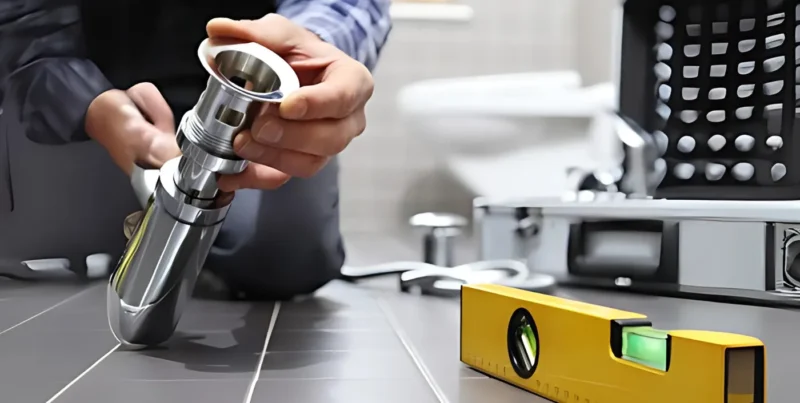
Common Problems Experienced With Cheap Heat Pump Hot Water Systems
Cheaper heat pumps might save you money at the start, but they often come with problems. Here’s what to watch out for:
- Efficiency: Cheaper heat pumps usually use more electricity to heat water, which means you’ll pay more on your power bills over time.
- Noise: Many people complain that heat pumps can be noisy. This is important if you’re putting it near a place where people hang out. Some heat pumps are as quiet as a fridge (around 35 decibels), while others sound more like a boiling kettle (around 55 decibels).
- Warranty: Big, well-known brands usually have better support and longer warranties. Cheaper brands often have shorter warranties and more rules that can cancel your warranty if you’re not careful. People also say it’s harder to get help if something goes wrong.
- How Long It Lasts: Better quality heat pumps last longer. In places like NSW and Victoria, you can only use the rebate once — so if your cheap heat pump breaks after a few years, replacing it will cost a lot more.
If a quote you get seems too good to be true, it’s smart to double-check the company. You can:
- Look them up on ABN Lookup.
- Read online reviews about the heat pump and the company
- Ask to see proof that they have plumbing and electrical licenses
Doing this can help you avoid problems later.
Conclusion
To wrap it up, getting a heat pump hot water system can be a smart way to save money and energy at home or at work. The system itself can cost anywhere from about $1,500 to $5,000, depending on the size and features. The cost to install it can also change based on how tricky the setup is and where you live.
Even though the price at the start might seem high, heat pumps can save you a lot over time. They use up to 70% less energy than regular electric or gas water heaters, which means smaller energy bills in the future.
Before you buy one, it’s a good idea to talk to an energy expert. They can help you figure out what system fits your needs and budget, and give you a clear idea of what the installation will cost.
In the end, choosing a heat pump hot water system is a smart move. You’ll save money on energy, help the environment, and enjoy a reliable hot water system for years to come.
Heat pump hot water systems are an excellent investment in comfort, sustainability, and long-term savings. While upfront costs are higher, they pay off through energy efficiency.
Professionals such as Fang Architects and eco-conscious partners like Wood Architecture often recommend these systems as part of a smart, low-impact home or commercial build.
Want to learn more or get started? Contact us today for info or to book a consultation.

